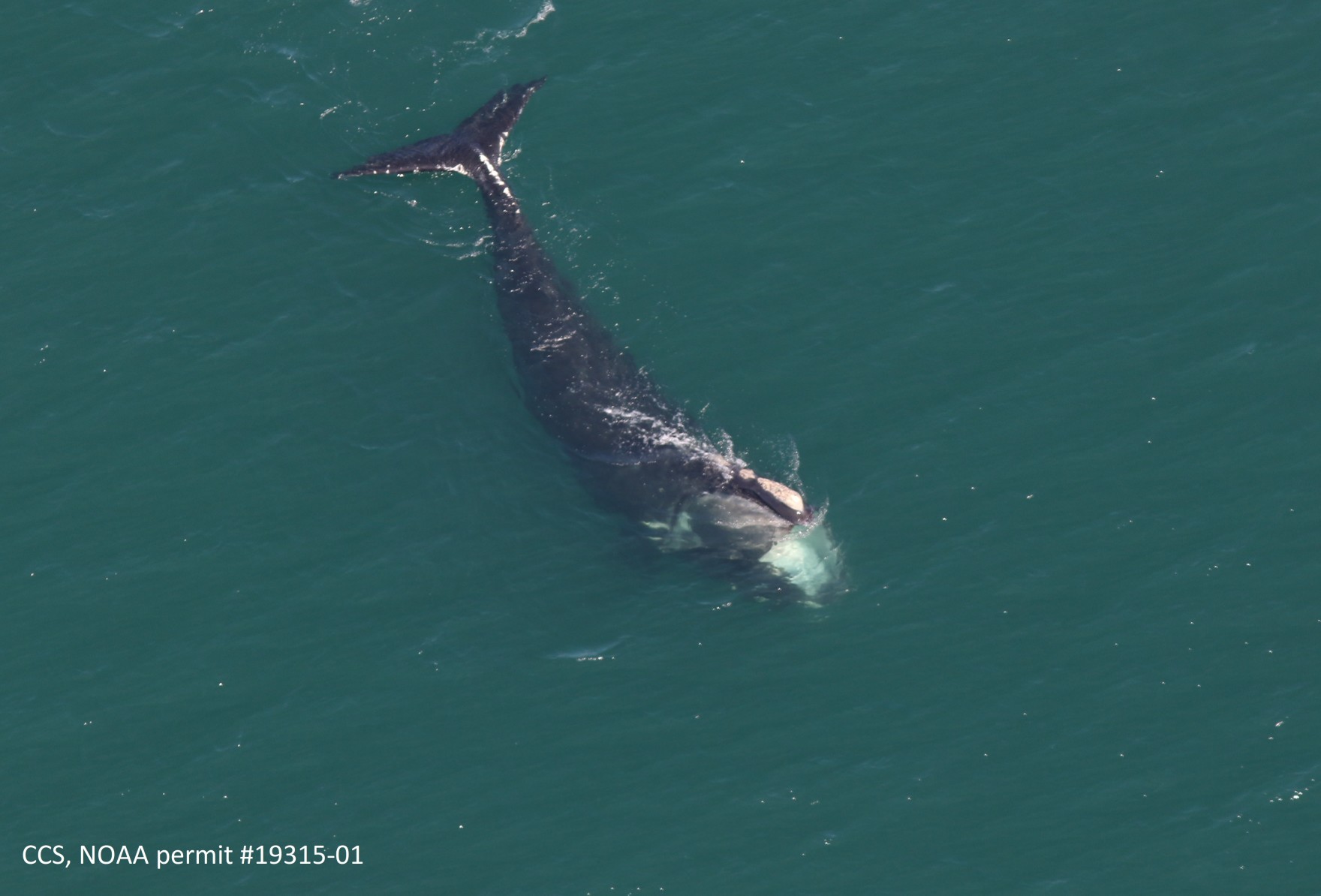With A Drone and Patience, Scientists Track Endangered Right Whale in Cape Cod Bay

Garlic, a juvenile North Atlantic right whale, is spotted by an aerial survey team north of Plymouth Bay on April 22, 2018. (Center for Coastal Studies)
On a recent cool, windy day, a team of scientists aboard a weatherbeaten 55-foot sailboat motored across Cape Cod Bay toward Provincetown, where dozens of North Atlantic right whales had been spotted days earlier.
“A bunch of whales were [seen] on a line between the mouth of Barnstable Harbor to Wood End off Provincetown. So … we’re going to head that way,” said team leader Michael Moore, a veterinarian and scientist with the Woods Hole Oceanographic Institution (WHOI).
The goal of Moore’s years-long research is to evaluate whether North Atlantic right whales are growing in healthy ways. The whales are nearing the end of a three-month period during which up to nearly half of the population of approximately 360 can be spotted in Cape Cod Bay.
It’s a unique opportunity for researchers to take stock of the critically endangered species — one that’s facing extinction.
“Today I’m hoping to find some whales … and get some drone photographs of them to measure them, figure out how fat and long they are, and [see] how that compares to the last time we saw them,” he said.
To Moore, it’s a mistake to gauge the health of this species based on population numbers alone. More than 80 percent of the survivors bear scars of entanglement in rope and fishing gear, but little is known about how the trauma impacts their ability to repopulate.
Read the rest of the story at CAI’s website.
